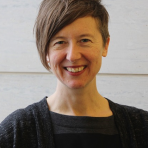Seeing Like a Cop: A Critical Phenomenology of Whiteness as Property
Seeing Like a Cop: A Critical Phenomenology of Whiteness as Property
Categories: Lectures and Seminars | Intended for Carleton Community

2017 Dunton Tower
1125 Colonel By Dr, Ottawa, ON
Contact Information
Stuart Murray, 2314, stuart.murray@carleton.ca
Registration
No registration required.
Cost
Free
About this Event
Host Organization: Department of English Language and Literature
RESEARCH TALKS Series
"Seeing Like a Cop: A Critical Phenomenology of Whiteness as Property"
Lisa Guenther (Queen’s University)
Abstract
In her landmark essay, “Whiteness as Property,” Cheryl Harris shows how whiteness functions as a kind of property that protects those who pass as white from occupying the very bottom of a social hierarchy. This talk explores the perceptual practices and sociogenic structure of whiteness as property through an engagement with Fanon’s account of the lived experience of blackness in a white world, which is structured by the corporeal schema, the historico-racial schema, and the racial epidermal schema. Drawing on Darren Wilson’s grand jury testimony, as well as critical literature on race and policing, I argue that a possessive investment in whiteness produces and intensifies the investment in security apparatuses that serve and protect some people while exposing others to both mundane and spectacular forms of state violence. This double investment in property and security drives the perceptual practice of suspicious surveillance, or “seeing like a cop,” as well as the spatial politics of gentrification.
Bio
Lisa Guenther is Queen’s National Scholar in Political Philosophy and Critical Prison Studies at Queen’s University in Canada. She is the author of Solitary Confinement: Social Death and its Afterlives (2013) and co-editor of Death and Other Penalties: Philosophy in a Time of Mass Incarceration (2015). From 2012-17, she facilitated a discussion group with men on death row in Tennessee called REACH Coalition. She is currently working on two projects: 1) a critical phenomenology of carceral space, and 2) a feminist analysis of the relation between incarceration, reproductive politics, and settler colonialism in Canada, Australia, and the United States.
Reception to follow